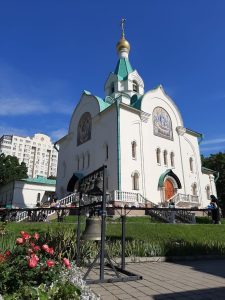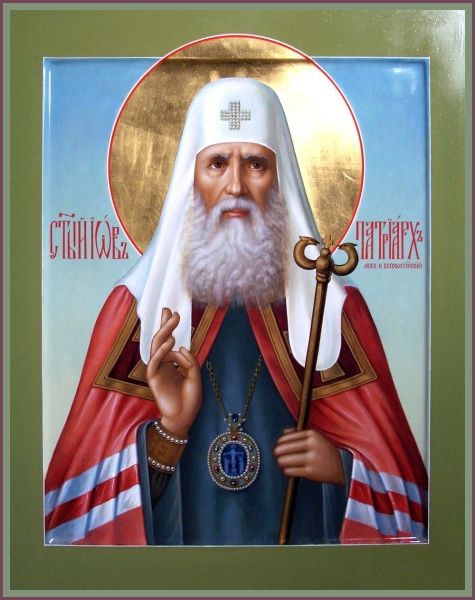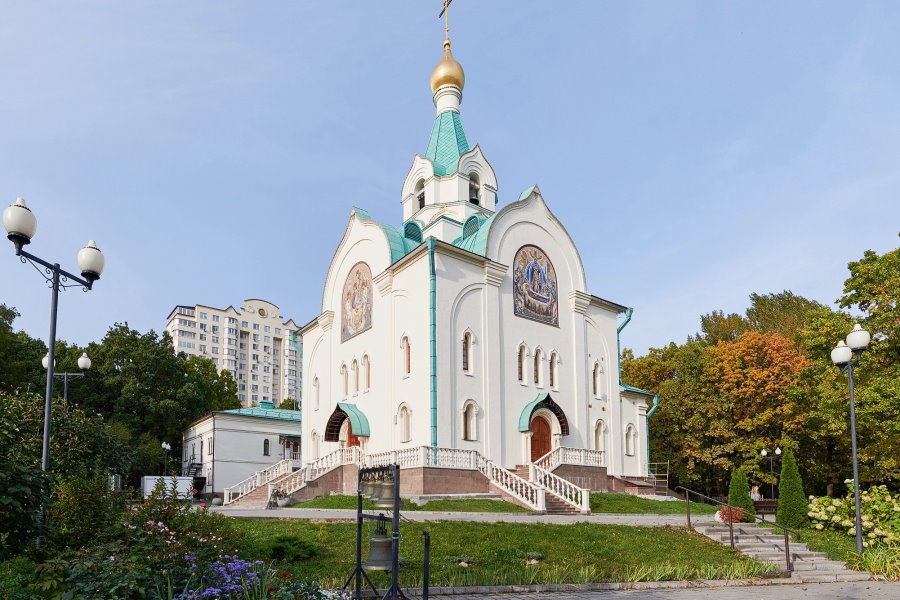Church of St. Iov, Patriarch of Moscow and All Russia, Patriarchal Compound

St. Job of Moscow, the first Patriarch of Russia, was born in the second quarter of the 16th century in the ancient city of Staritsa into a family of pious townspeople. Since childhood, he was brought up at the Assumption Staritsky Monastery, where he received a spiritual education under the guidance of Archimandrite Herman. His love for the Holy Scriptures and the monastic environment awakened in him a desire for monastic life. Despite his father`s desire to marry him, on the day of the wedding, the young man went to a monastery, where he took vows. Saint Job spent more than 15 years in the Staritsky monastery, where he rose from novice to abbot. He was distinguished by deep humility, mercy and self-denial, strictly followed the monastic rules, practised fasting and prayer, being an example for the brethren. In 1571, he was appointed as rector of the Simonov Monastery in Moscow, and in 1575 he became the head of the Novospassky Monastery. In 1581, Metropolitan Dionysius ordained him the Bishop of Kolomna, and in 1586 he was elevated to the rank of the Archbishop of Rostov. On December 11, 1587, the Council of Bishops confirmed him the Metropolitan of Moscow and All Russia, and on January 26, 1589, with the blessing and participation of Patriarch Jeremiah II of Constantinople, Job became the first Patriarch of Moscow. This event consolidated the canonical independence of the Russian Church, and in 1590 the Moscow Patriarchate was recognized at the Council of the Eastern Hierarchs. Saint Job actively improved church life, took care of the morals of the clergy, maintained strict rules of worship, and organized the construction of churches and monasteries. With his blessing, active book printing was carried out, and the publication of liturgical books necessary for both the central regions and the newly enlightened lands of the Volga Region and Siberia began. During his lifetime, the Lenten Triodion (1589), The Colour Triodion (1591), the Octoechos (1594), the General Menaea (1600) and other important liturgical books were first published. He also initiated the glorification of a number of Russian saints, including Basil the Blessed, Kazan Saints Gurius and Varsonofy, St. Joseph of Volotsky, St. Anthony of Rome, Cornelius Komelsky and others. Among the most important achievements of the saint were active missionary work, the foundation of new dioceses (Pskov, Astrakhan, Karelia), the construction of churches and monasteries. In Moscow alone, 12 churches were erected in 1592-1600, and the Donskoy, Zachatievsky, and Ivanovsky monasteries were founded. The preaching of Orthodoxy in Siberia and other remote regions has strengthened the position of the Russian Church. During the Time of Troubles, Patriarch Job firmly opposed False Dmitry I, denouncing his imposture and exposing a conspiracy against the state and the Church. However, not everyone supported the saint, and after the capture of Moscow, the impostor deposed the patriarch. During the liturgy at the Assumption Cathedral, the saint was captured, humiliated and sent into exile to the Staritsky Monastery, where he spent two years in prayer, became blind and died on June 19, 1607. In 1652, his relics were transferred to Moscow and laid next to the tomb of Patriarch Joasaph. The veneration of Saint Job as a righteous man was noted as early as the 18th century. At the end of the 19th century, he was depicted among the Tver saints, and the church-wide glorification took place at the Bishops` Council on October 9, 1989. A church has been erected in Moscow in memory of St. Job.
Address: Moscow, Mozhaiskoe sh., 56, building 1

